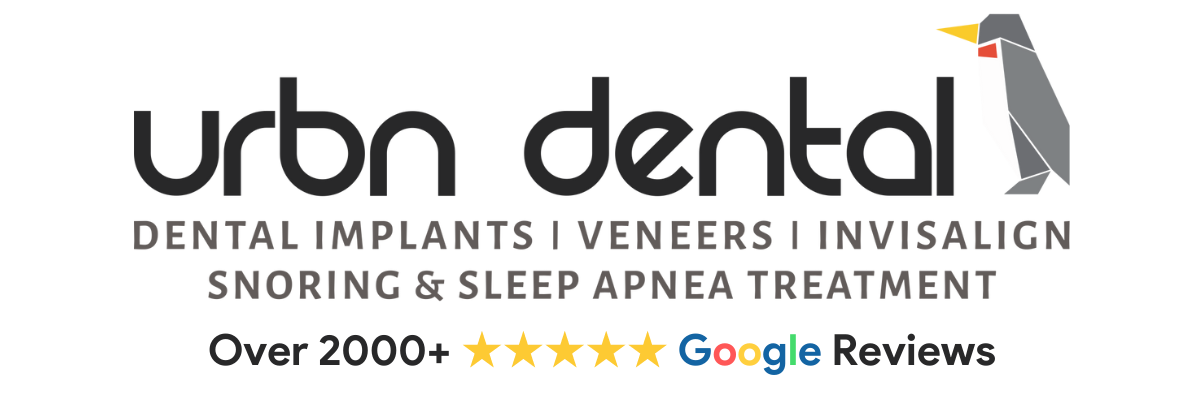In This Article
Welcome to URBN Dental, where we prioritize your oral health and provide comprehensive dental care tailored to your needs. One essential aspect of maintaining optimal oral health is routine professional dental cleanings. In this article, we discuss what occurs during your dental cleaning appointment and how our skilled dental hygienists perform this crucial procedure.
The Importance of Dental Cleanings
Before we delve into the details of the dental cleaning process, let’s emphasize the significance of regular dental cleanings. Routine dental cleanings are vital for maintaining healthy teeth and gums and preventing various dental issues such as cavities, gum disease, and tooth loss. Even with meticulous oral hygiene practices at home, plaque and tartar can accumulate in hard-to-reach areas, leading to dental problems if left untreated. Professional cleanings every six months help remove plaque and tartar buildup, ensuring your teeth and gums stay healthy.
Benefits of Regular Dental Cleanings
Regular dental cleanings offer numerous benefits for your oral health, including:
- Preventing Cavities: Plaque is a sticky film of bacteria that constantly forms on your teeth. If not removed, it can lead to tooth decay and cavities. Professional cleanings remove plaque and tartar buildup, reducing the risk of cavities.
- Gum Disease Prevention: Plaque buildup along the gum line can lead to inflammation and infection, causing gum disease. Regular cleanings help remove bacteria and plaque from the gum line, reducing the risk of gum disease.
- Fresh Breath: Bacteria in plaque can produce foul-smelling compounds that contribute to bad breath. Dental cleanings remove bacteria and plaque, leaving your mouth feeling fresh and clean.
- Early Detection of Dental Issues: During your cleaning appointment, the dental hygienist may identify early signs of dental problems such as cavities, gum disease, or oral cancer, allowing for prompt treatment and intervention.
The Role of the Dental Hygienist
At URBN Dental, our skilled dental hygienists play a pivotal role in performing professional dental cleanings. They are trained professionals with expertise in oral health maintenance and preventive dental care. During your cleaning appointment, the dental hygienist works closely with you to ensure a comfortable experience while effectively removing plaque, tartar, and stains from your teeth.
Tasks Performed by Dental Hygienists
Dental hygienists are trained to perform a variety of tasks, including:
- Assessment and Examination: Your dental cleaning appointment typically begins with an initial assessment and examination by the dental hygienist. They will review your medical history, inquire about any dental concerns or issues you may be experiencing, and perform a thorough examination of your teeth and gums. This assessment helps them identify potential trouble spots and tailor the cleaning procedure to address your specific needs.
- Scaling and Root Planing: The next step in the dental cleaning process involves scaling and root planing, which are essential for removing plaque and tartar buildup both above and below the gum line. Using specialized dental instruments, such as ultrasonic scalers and hand scalers, the dental hygienist carefully removes plaque and tartar deposits from the surfaces of your teeth and along the gum line. Root planing involves smoothing the roots of the teeth to prevent bacteria from adhering and causing further inflammation.
- Polishing and Fluoride Treatment: Once the scaling and root planing are complete, your teeth will undergo polishing to remove surface stains and create a smooth, polished surface. The dental hygienist uses a rotating polishing tool and a special abrasive paste to polish the surfaces of your teeth, leaving them clean and shiny. After polishing, a fluoride treatment may be applied to strengthen your tooth enamel and help prevent tooth decay. Fluoride is a mineral that remineralizes the enamel, making it more resistant to acid attacks from plaque bacteria. The fluoride treatment is typically applied as a foamy gel or a sticky paste and left on your teeth for a short period before being rinsed off.
Oral Hygiene Education and Recommendations
In addition to performing the cleaning procedure, our dental hygienists also provide valuable oral hygiene education and recommendations to help you maintain optimal oral health between dental visits. They may offer guidance on proper brushing and flossing techniques, recommend dental products tailored to your needs, and provide tips for addressing specific oral health concerns.
Topics Covered During Oral Hygiene Education
During your appointment, the dental hygienist may discuss the following topics:
- Brushing Technique: Proper brushing technique is essential for effectively removing plaque and preventing cavities and gum disease. The dental hygienist may demonstrate the correct brushing technique and provide tips for maintaining good oral hygiene at home.
- Flossing: Flossing helps remove plaque and food particles from between your teeth and along the gum line. The dental hygienist may demonstrate proper flossing techniques and recommend flossing products that are suitable for your needs.
- Diet and Nutrition: Your diet plays a significant role in your oral health. The dental hygienist may offer dietary recommendations to help reduce your risk of cavities and gum disease, such as limiting sugary and acidic foods and beverages.
- Smoking Cessation: Smoking and tobacco use can have detrimental effects on your oral health, increasing your risk of gum disease, oral cancer, and tooth loss. The dental hygienist may provide resources and support to help you quit smoking and improve your oral and overall health.
Frequently Asked Questions (FAQs)
1. How often should I get professional teeth cleanings?
According to the American Dental Association (ADA), it is generally recommended to get professional teeth cleanings every six months. However, your dentist or dental hygienist may recommend more frequent cleanings based on your individual oral health needs. Factors such as the presence of gum disease, tartar buildup, and susceptibility to cavities may influence the frequency of cleanings.
2. What is the difference between regular teeth cleanings and deep teeth cleanings?
Regular teeth cleanings, also known as prophylaxis, are routine cleanings performed every six months to remove plaque, tartar, and surface stains from the teeth. Deep teeth cleanings, also called scaling and root planing, are more extensive cleanings recommended for individuals with gum disease or significant tartar buildup below the gum line. Deep cleanings involve removing plaque and tartar from the surfaces of the teeth as well as from the roots of the teeth below the gum line.
3. Can professional teeth cleanings treat gum disease?
Professional teeth cleanings play a crucial role in the prevention and treatment of gum disease. During a cleaning appointment, the dental hygienist removes plaque and tartar buildup from the gum line and tooth surfaces, reducing inflammation and preventing the progression of gum disease. In cases of mild to moderate gum disease, regular cleanings combined with good oral hygiene practices at home may be sufficient to treat the condition. However, more severe cases of gum disease may require additional treatment, such as deep cleaning procedures or periodontal therapy.
4. Are professional teeth cleanings painful?
Professional teeth cleanings are typically not painful, although some individuals may experience mild discomfort or sensitivity during certain parts of the cleaning process, such as scaling and root planing. However, the dental hygienist will take steps to ensure your comfort throughout the procedure, such as using local anesthesia if needed or adjusting the pressure of dental instruments. If you experience significant discomfort during cleaning, be sure to communicate with your dental provider so they can address your concerns and make the experience as comfortable as possible.
5. How can I maintain healthy gums between professional teeth cleanings?
To maintain healthy gums between professional teeth cleanings, it’s essential to practice good oral hygiene habits at home. This includes brushing your teeth twice a day with fluoride toothpaste, flossing daily to remove plaque and food particles from between your teeth, and using an antiseptic mouthwash to help control bacteria. Additionally, be sure to schedule regular dental check-ups and cleanings with your dentist or dental hygienist to monitor your oral health and address any concerns promptly. If you notice signs of gum disease, such as bleeding gums or persistent bad breath, contact your dentist for evaluation and treatment.
Visit URBN Dental for Cleaning Teeth Dental Treatment
At URBN Dental, we understand the importance of routine dental cleanings in maintaining optimal oral health. Our skilled dental hygienists are dedicated to providing thorough and effective cleanings to help you achieve a healthy smile. If you’re due for a dental cleaning or have any concerns about your oral health, we encourage you to schedule an appointment at one of our convenient locations in Houston. Remember, investing in regular dental cleanings is an investment in your long-term oral health and overall well-being. We look forward to serving you and helping you maintain a beautiful, healthy smile.

